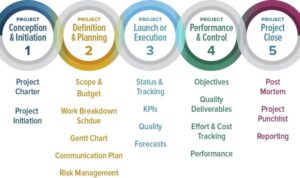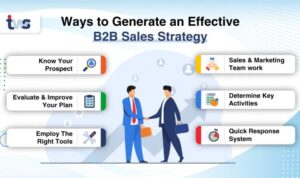Event Planning for Brands sets the stage for an epic journey into the world of brand promotion, where creativity meets strategy to create unforgettable experiences. From connecting with audiences to boosting visibility, this topic delves into the core of successful event planning for brands.
The key steps, budgeting strategies, and marketing tactics discussed here will equip you with the tools needed to plan and execute brand events that leave a lasting impact. Get ready to dive into the realm of brand event planning like never before.
Importance of Event Planning for Brands

Event planning plays a crucial role in promoting brands and creating a lasting impact on target audiences. Well-executed events can help brands connect with their customers on a more personal level, building loyalty and trust in the process.
Enhancing Brand Visibility and Awareness
Events provide a platform for brands to showcase their products or services in a captivating and interactive manner. By creating memorable experiences for attendees, brands can leave a lasting impression and increase their visibility in a crowded market.
- Hosting product launch events
- Organizing experiential marketing activations
- Participating in trade shows and industry conferences
Successful Brand Event Examples
Apple’s annual product launch events
Apple’s product launch events are highly anticipated and meticulously planned, generating buzz and excitement among consumers worldwide. These events not only showcase Apple’s latest innovations but also reinforce the brand’s image as a leader in the tech industry.
Red Bull’s extreme sports events
Red Bull has successfully leveraged extreme sports events such as the Red Bull Air Race and Red Bull Rampage to connect with their target audience of adrenaline junkies and thrill-seekers. These events not only promote the brand’s image as a high-energy lifestyle brand but also create opportunities for brand engagement and experiential marketing.
Sephora’s beauty masterclasses
Sephora’s beauty masterclasses and makeup tutorials have become a staple in the beauty industry, attracting beauty enthusiasts and makeup lovers to their stores. These events not only showcase Sephora’s wide range of products but also provide valuable education and personalized experiences for attendees, enhancing brand loyalty and awareness.
Key Steps in Event Planning for Brands
Planning a successful brand event involves several key steps to ensure everything runs smoothly and leaves a lasting impression on attendees. From setting clear objectives to selecting the right venue and entertainment, every detail plays a crucial role in the overall success of the event.
Setting Clear Objectives and Goals
When planning a brand event, it is essential to establish clear objectives and goals to guide the planning process. These objectives should align with the overall brand strategy and help determine the desired outcomes of the event. Whether it’s increasing brand awareness, promoting a new product, or building customer loyalty, setting clear objectives will help focus efforts and measure the success of the event.
Selecting the Right Venue, Catering, and Entertainment, Event Planning for Brands
Choosing the right venue is key to creating the desired atmosphere for the brand event. Consider factors such as location, capacity, and amenities to ensure the venue aligns with the event’s theme and objectives. When it comes to catering, selecting a menu that complements the brand and caters to the attendees’ preferences is crucial. Additionally, entertainment plays a vital role in keeping guests engaged and enhancing the overall experience. Whether it’s live music, interactive activities, or guest speakers, the right entertainment can leave a lasting impression on attendees.
Creating a Detailed Timeline and Checklist
To ensure a smooth and successful event execution, it is important to create a detailed timeline and checklist outlining every aspect of the event. This timeline should include key milestones, deadlines, and responsibilities to keep everyone on track and accountable. A comprehensive checklist will help ensure that no detail is overlooked, from logistics and setup to marketing and post-event follow-up. By having a clear roadmap of tasks and deadlines, you can minimize last-minute stress and ensure a seamless event experience for both organizers and attendees.
Budgeting and Cost Management in Brand Event Planning
Effective budgeting is crucial in brand event planning to ensure that resources are utilized efficiently and costs are kept under control. Allocating budget resources for different aspects of a brand event requires careful consideration and strategic planning. Negotiating with vendors and maximizing budget efficiency can help stretch the budget further and get the most value out of each dollar spent. Tracking expenses and managing costs throughout the event planning process is essential to avoid overspending and stay within the allocated budget.
Strategies for Effective Budgeting
- Set clear budget goals and objectives to guide decision-making.
- Research and compare prices from different vendors to get the best deals.
- Allocate a contingency fund for unexpected expenses.
- Prioritize budget items based on their impact on the overall event experience.
Allocation of Budget Resources
- Allocate a significant portion of the budget to key elements like venue, catering, and entertainment.
- Determine the areas where cost savings can be made without compromising the quality of the event.
- Consider the value each expense adds to the brand event and adjust the budget accordingly.
Negotiating with Vendors and Maximizing Budget Efficiency
- Communicate clearly with vendors about budget constraints and negotiate for discounts or package deals.
- Explore sponsorship opportunities or partnerships to offset costs and enhance the event experience.
- Opt for in-kind sponsorships or trade agreements to reduce cash outlay for certain services or products.
Importance of Tracking Expenses and Managing Costs
- Keep detailed records of all expenses and regularly update budget projections to stay on track.
- Review spending against the budget regularly and make adjustments as needed to avoid exceeding the allocated funds.
- Engage in cost-saving measures throughout the planning process to maximize budget efficiency and reduce unnecessary expenses.
Marketing and Promotion Strategies for Brand Events: Event Planning For Brands

Marketing and promoting a brand event is crucial for its success. It helps in creating buzz, attracting attendees, and increasing brand visibility. Utilizing various marketing channels and strategies can make a significant impact on the event’s outcome.
Different Marketing Channels and Strategies
- Utilize social media platforms like Instagram, Facebook, and Twitter to create event pages, share updates, and engage with followers.
- Collaborate with influencers in your industry to reach a larger audience and increase credibility.
- Implement email marketing campaigns to send personalized invites, reminders, and exclusive content to potential attendees.
Role of Social Media, Influencers, and Email Marketing
- Social media platforms play a vital role in reaching a wide audience, generating excitement, and encouraging engagement before, during, and after the event.
- Influencers can help amplify your brand message, increase event attendance, and provide authentic endorsements that resonate with their followers.
- Email marketing allows for direct communication with attendees, provides a platform for personalized messaging, and helps in building relationships with potential guests.
Creating Engaging Content and Campaigns
- Develop visually appealing graphics, videos, and posts that showcase the event’s highlights, speakers, and activities to capture audience attention.
- Run interactive contests, polls, and giveaways to engage with followers, create anticipation, and encourage participation in the event.
- Craft compelling storytelling narratives that connect the audience with the brand, its values, and the unique experience the event offers.
Measuring Marketing Effectiveness and Making Adjustments
- Track key performance indicators (KPIs) such as website traffic, social media engagement, email open rates, and ticket sales to evaluate the success of marketing efforts.
- Analyze data insights to identify areas of improvement, adjust strategies as needed, and optimize future marketing campaigns for better results.
- Seek feedback from attendees, monitor online reviews, and conduct post-event surveys to gather valuable insights and make informed decisions for upcoming brand events.





